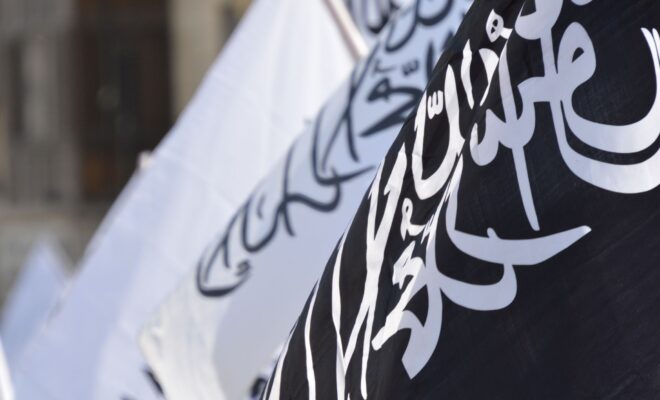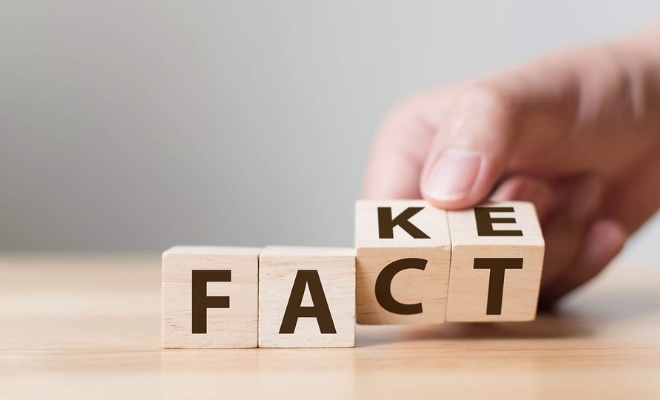The Rulers of the Muslim Lands are Not Legitimate

Today, Muslims are more aware than ever of the betrayal of the rulers in the Muslim lands. Not only that, but the Ummah is now seeing the rulers become more brazen in their hostility and hate towards Islam.
The UAE is openly working towards the “normalization” of ties with the Zionist Entity (even though it brutalizes Muslims in Masjid al-Aqsa and occupies their land). We now see a rise in secular practices – like mixed concerts, beaches where women expose their awrah with no limits – in Saudi Arabia. Turkey allows the colonialist powers (e.g., U.S.) to set up military bases (Incirlik Air Base) geared towards bombing the Muslims. Pakistan routinely takes in billions in loans from the IMF to throw the country into further economic freefall with crippling inflation.
Our Ummah can clearly see the harm of the colonialist policies, nationalistic borders, and man-made constitutions on our lands, our people, and our children. Moreover, it is obvious to everyone that these policies defy the commands of Allah (swt).
Yet even though the colonialist puppets openly rule by Kufr, we find seemingly legitimate voices endorsing these rulers. They, for example, claim that the rulers of the Muslim lands are legitimate, and that the Ummah must obey them. They misrepresent certain evidences about obeying the ruler (which, as we will discuss, are meant for the Khalifah) to condemn those speaking against these puppets of the Colonialist powers.
In this article, we will go through each of these evidences to show (1) that the rulers of the Muslim lands are Islamically illegitimate; (2) that we are obliged to remove these rulers and their systems;
(3) and that we must replace them with the Khilafah System.
Reality of the Problem (Who is the Ulool-Amr?)
The word Ulool-Amr is translated to People of Authority. It means the people (ashaab) who have decision-making capabilities and can implement these decisions for the Ummah. Allah (swt) says:
O you who believe! Obey Allah and obey the Messenger and those of you (Muslims) who are in authority (TMQ 4:59)
The question is what are the matters (“Amr”) of the Ummah that the rulers of today are supposed to be managing? The matter for the Muslims is their Deen. It is not their nationality or any other human-constructed association.
Legitimacy of the Ruler and Legitimacy of the Ruling System
Certain conditions legitimize the ruler in the Islamic System, such as: being a male, Muslim, of-age, intellect, free (i.e., not a slave), and just. Furthermore, the legitimacy of the ruling system rests on two matters: (1) the implementation of Islam and (2) the security/control of the State and its land belongs to the Muslims. Finally, the selection of the ruler in the Islamic system requires a Ba’yah (Pledge of Allegiance) based on both the acceptance and choice of the Ummah.
Origin of Obedience Ta’aa is to Allah (swt)
The origin of obedience is to Allah (swt). Every other obedience after than that is either permitted, or commanded. This includes examples like obedience of a son to his parents, or a wife to her husband. But therein lies an important principle: Obedience to any other being is all linked to their obedience to the origin i.e., Allah (swt). Otherwise, there is no obedience.
This is exemplified in the hadith where the Prophet (saw) sent a battalion and he placed in leadership a man from the Ansar. The Ansari then asked his men, “Did not the Prophet command that you obey me?” The Companions said, “Indeed he did.” Then the Ansari man set a fire and commanded his men to jump in the fire.
A few of the men contemplated jumping in the fire, but then a young man said: “You indeed ran to follow the Prophet (saw) to save yourselves from the Fire; do not hasten any decision until you ask the Prophet (saw).” When they asked the Prophet (saw) about the matter he responded, “Had you had entered that fire you would have never left it. Indeed, Obedience is only in what is Ma’roof (what the Shariah commands).” (Agreed Upon).
There are many more evidences that indicate that obedience is only in what Allah (swt) has permitted. For example, the Prophet (saw) said:
“Hearing and Obeying is a right as long as sin is not commanded, if sin is commanded then there is no hearing and obedience.” (Bukhari)
Imam Al-Alusi said (when commenting on Surah An-Nisa: 59) that the word “obey” is used prior to Allah and prior to his Messenger and not for the people of authority as it is a clear announcement that there is no independent authority for the Ulool al Amr like there is for Allah (swt) and his Messenger (saw).
In a hadith narrated by Ubadah ibn Samit (ra), the Prophet (saw) said:
“There will be rulers upon you after me, they will command what you do not recognize, and do actions that you reject, they are not upon you Imams (a’immah). (Hadith Hasan, Imam Suyuti)
In a hadith in Musnad Ahmed, the Prophet (saw) sought refuge from the rule of the ignorant and incompetent (Imara al-Sufaha). In it, he mentions: “Whoever believes their lies, and helps them with the oppression they are not from me, and I am not from them, and they will not come to my Pond (hawd), as for he who rejects their lies, and does not help in their oppression they are from me and I am from them and they will come to my Pond.” (Sahih according to Ibn Hajr).
Also, there is a principle in Usul al Fiqh that states, “Using two evidences is better than leaving one”
Basically, with this topic having many different texts of evidence, we must use the Usuli (jurisprudence) principle of using all of the available ones and reconciling them. This is better than excluding or leaving out one evidence due to an apparent contradiction.
Some quote a hadith in which the Prophet (saw) says in Sahih Muslim:
“Obey the Amir even if beats your back and takes your money, hear and obey”. (Muslim)
What they ignore is that there is another narration in Sahih ibn Hibban, which gives the full meaning. The Prophet (saw) says: “Obey the Amir even if beats your back and takes your money, hear and obey, unless you see an Apparent sin done against Allah”. When reconciled, this shows that if there is a ruler who, for example, rushes in to punish someone, or takes money or land but with legal reasoning that may be disputable, then he must be advised, and the Muslims should be patient.
However, committing an open sin like implementing man-made legislation (e.g., opening riba-based Banks, setting up army bases of the Kuffar, or negating the Islamic judicial system) requires the Ummah to remove the ruler, immediately.
What is Kufr Bawah?
Some of those who defend the current day rulers say the Prophet (saw) stipulated that the ruler must exhibit Open Kufr in himself, and that means he must renounce Islam and become an Apostate for him to become illegitimate.
They use the evidence in Sahih Muslim narrated on the authority of Ubadah ibn Samit (ra), where the Prophet (saw) took a pledge from the Sahaba where “that they do not dispute the matter with the people of authority unless they see Open Kufr (Kufr-an Bawahan) with a clear proof from Allah” (Sahih Muslim).
But the rulers’ supporters fail to mention that there are other authentic narrations where the Prophet (saw) says (e.g., in Sahih ibn Hibban), “unless you see Ma’siyah Bahawan (Open Sin).” The word Bawah means “open” and “apparent” and “that which has no doubt.”
Imam an-Nawawi states the intended meaning of Kufr in this hadith means Open Apparent Sins (alma’asee).
Hence Kufr bawahan can mean either:
- The ruler himself declares kufr (i.e., renounces Islam)
- That Muslims under his authority espouse Kufr openly without any rejection from the ruler
- The system of ruling that is implemented is from a kufr aqeedah
Imam ibn Hazm (rh) wrote:
“The Imam (leader) must be obeyed as long as he leads us with the Book of Allah and the Sunnah of his Messenger (saw) and he turns away from any aspect of it such as implementing the Hadd (punishment) and the rights and there is no way to protect from his harm except by removing him, then he must be removed, and another person should be appointed.”
“As Long as the Ruler Prays?”
One of the main arguments used to call Muslims to obey the treacherous rulers in the Muslim lands is the ahadith of the Prophet (saw) where he says to obey the ruler as long as they are doing Iqama-Salat (establishing the prayer).
Hence, in their view, this hadith means the ruler can legalize everything Allah has forbidden and forbid what Allah has permitted as long as he says he believes Allah (swt) is the ultimate legislator and prays Salah. They say he must be obeyed.
But there is a critical problem with this idea. How can Allah (swt) tell Muslims to obey someone who is calling the Ummah to both disobey Him (swt) and adopt laws other than His (swt)?
The evidence presented is the hadith in Sahih Muslim, where the Prophet (saw) said:
“the best of your leaders are those whom you love and they love you and you pray for them and they pray for you. The most evil of your leaders are those who you hate and they hate you and you curse them and they curse you. It was asked, Oh Prophet Shall we not fight them with our swords? He said: “No As long as he establishes in you the Salat (prayer)”.
In another narration it says: “As long as they pray”. (Abu Dawud)
Imam al-Qari (rh) said:
“The apparent meaning of Salah is referring to the Deen. It was only mentioned (Salah) because it is the pillar of the Deen and it is the mother of the ibadat, and it prevents the evil or it was presented as an example, i.e., as long as he established the Salat and other matters of the Deen.”
Shaykh al Islam Ibn Taymiyyah (rh) mentioned:
“That is the Deen as it is not established without the Salat.”
Ibn Ashour (rh) mentioned:
“As for Establishing the Salat it refers to establishing the Deen.” (alQiyam biDeen)
Imam al-Qurtubi (rh) mentioned:
“If the ruler leaves establishing any principle from the principles of the Deen like establishing the Salah, or the Fasting of Ramadan, or implementing the Hudood (judicial system), or if he allows alcohol to be consumed or Zina and does not stop it, there is no difference that he must be removed from ruling.”
The idea that ‘establishing of Salat means establishing the Deen’ was even more clear in another narration of Rasul’Allah (saw). He (saw) said: “This matter (of ruling) shall remain in Quraysh, no one opposes them except that they will be thrown in the Hellfire with their faces, as long as they establish the Deen (ma aqaamoo alDeen).” (Bukhari).
Rulers are Illegitimate and Khilafah is Our Fard
Those ruling the Muslim lands are Islamically illegitimate. And it is a fard on the Ummah to work with those in positions of power and influence to remove these rulers. Not only that, but we are Islamically obliged to restore the ruling system of Islam, i.e., the Khilafah. Rasul’Allah (saw) said: “Whoever dies without an oath of allegiance (bay’ah), dies the death of jahiliyyah (time of ignorance)” (Muslim).
Let us work together to fulfill the prophecy of the Prophet (saw) and re-establish the promised Khilafah as Rasul’Allah (saw) said “and then there will be Khilafah on the method of the Prophet and then he was quiet.” (Ahmed)









